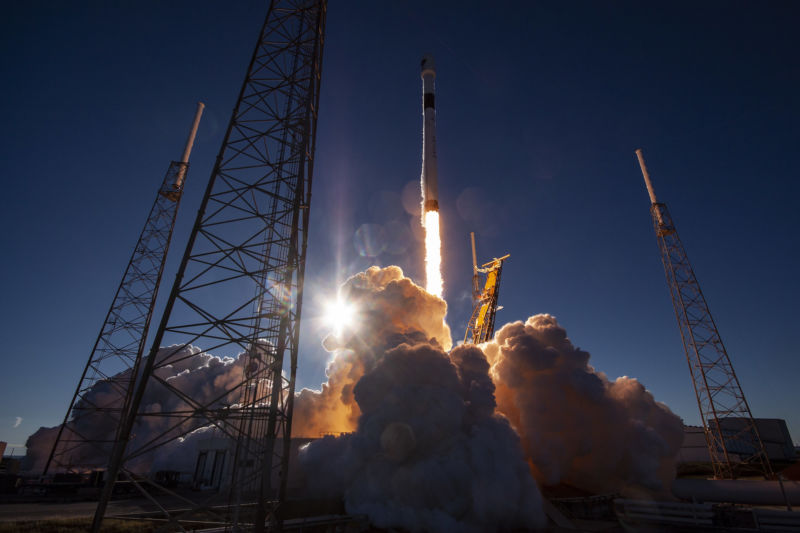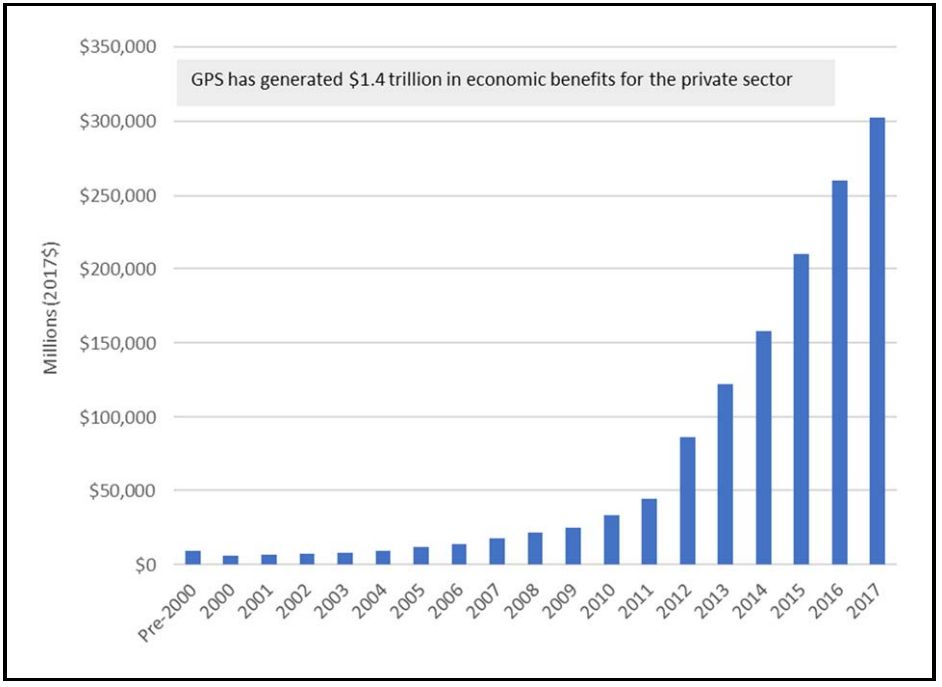
Since becoming fully operational in 1995, Global Positioning System technology has become widely adopted in the United States and abroad. The concept of satellite-based navigation has become so essential that other world powers, including China, Russia, the European Union, India, and Japan, have all started building their own regional or global systems.
Now, one of the most comprehensive studies on the subject has assessed the value of this GPS technology to the US economy and examined what effect a 30-day outage would have—whether it’s due to a severe space weather event or “nefarious activity by a bad actor.” The study was sponsored by the US government’s National Institutes of Standards and Technology and performed by a North Carolina-based research organization named RTI International.
Economic effect
As part of the analysis, researchers spoke to more than 200 experts in the use of GPS technology for various services, from agriculture to the positioning of offshore drilling rigs to location services for delivery drivers. (If they’d spoken to me, I’d have said the value of using GPS to navigate Los Angeles freeways and side streets was incalculable). The study covered a period from 1984, when the nascent GPS network was first opened to commercial use, through 2017. It found that GPS has generated an estimated $1.4 trillion in economic benefits during that time period.
The researchers found that the largest benefit, valued at $685.9 billion, came in the “telecommunications” category, including improved reliability and bandwidth utilization for wireless networks. Telematics (efficiency gains, cost reductions, and environmental benefits through improved vehicle dispatch and navigation) ranked as the second most valuable category at $325 billion. Location-based services on smartphones was third, valued at $215 billion.
Notably, the value of GPS technology to the US economy is growing. According to the study, 90 percent of the technology’s financial impact has come since just 2010, or just 20 percent of the study period. Some sectors of the economy are only beginning to realize the value of GPS technology, or are identifying new uses for it, the report says, indicating that its value as a platform for innovation will continue to grow.
Outage impact
In the case of some adverse event leading to a widespread outage, the study estimates that the loss of GPS service would have a $1 billion per-day impact, although the authors acknowledge this is at best a rough estimate. It would likely be higher during the planting season of April and May, when farmers are highly reliant on GPS technology for information about their fields.
To assess the effect of an outage, the study looked at several different variables. Among them was “precision timing” that enables a number of wireless services, including the synchronization of traffic between carrier networks, wireless handoff between base stations, and billing management. Moreover, higher levels of precision timing enable higher bandwidth and provide access to more devices. (For example, the implementation of 4G LTE technology would have been impossible without GPS technology).
In the case of an outage, there would be relatively minimal impacts over the first two days, but after that time, the wireless network would begin to degrade significantly. After 30 days, the study estimates that functionality would lie somewhere between 0 percent and 60 percent of normal operating levels. Landline phones would be largely unaffected.

“GPS came along at a time of significant evolution in the telecom sector and played a critical role in the digitization of telecom infrastructure and the advent of wireless technology,” the study states. “Wireless technology continues to evolve in ways that increase its reliance on highly precise timing, which in turn increases reliance on GPS. Multiple technological trends—from autonomous cars to the internet of things—will be stretching wireless technology to new limits in the coming years.”
The study is likely to increase public calls for improved safety and security of the US GPS system, which the Air Force continues to modernize with its new fleet of GPS III satellites. The first of these new satellites, offering positioning and timing information with three times better accuracy and heightened anti-jamming capabilities, launched on a Falcon 9 rocket in December.
https://arstechnica.com/?p=1522221

